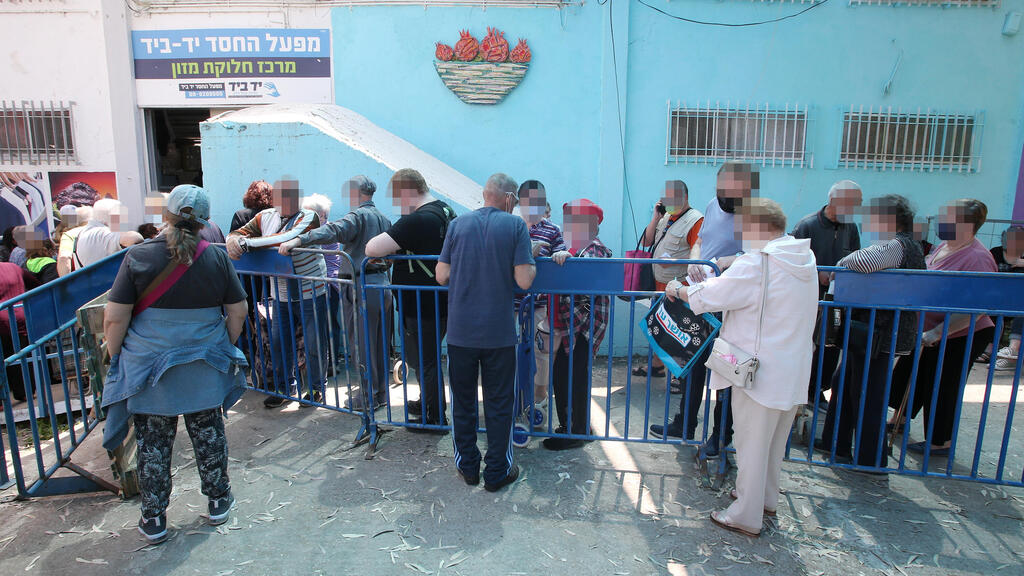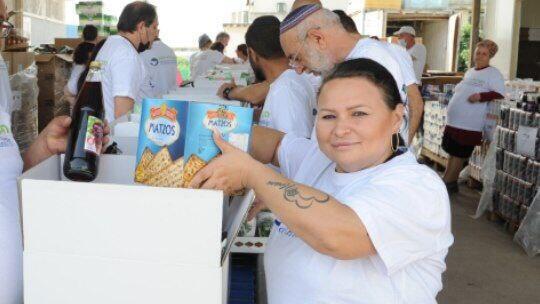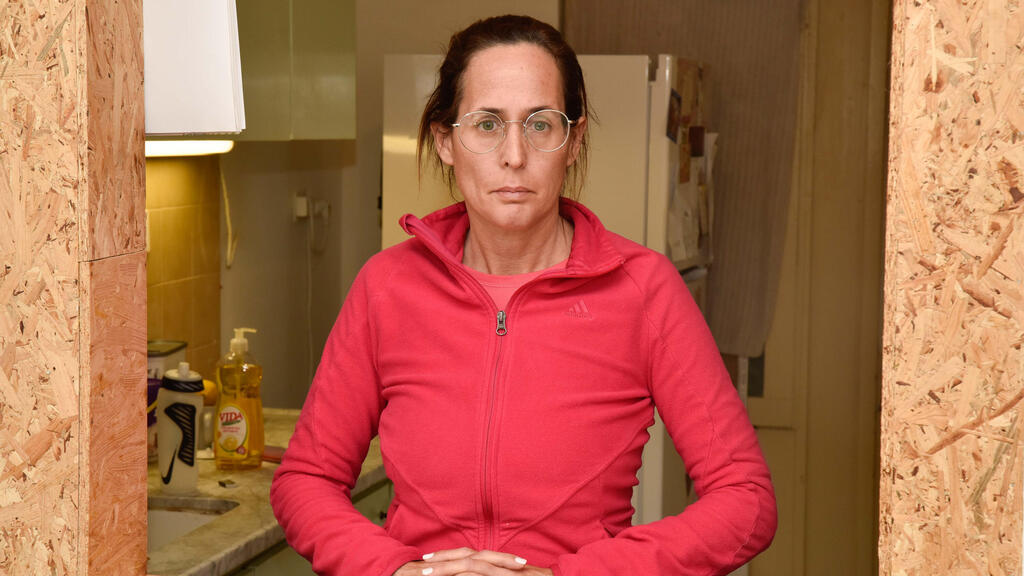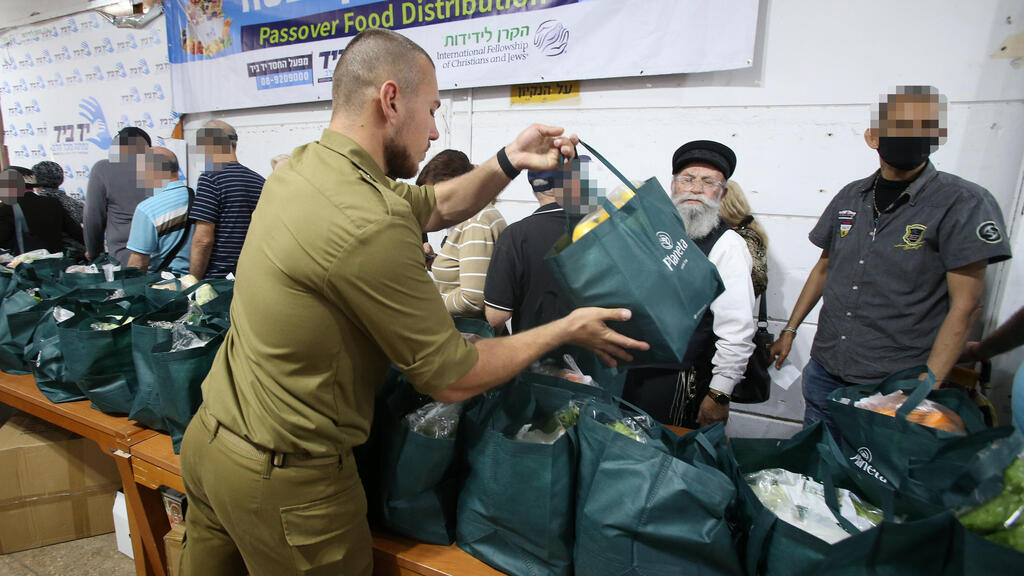Getting your Trinity Audio player ready...
While many Israelis will celebrate the Passover Seder on Friday with a table full of traditional holiday delicacies, some families are left to wonder how and if they will be able to celebrate the holiday this year at all.
Soup kitchens around Israel are reporting a surge in demand for food aid - which will be significantly more expensive compared to previous years due to the global price hikes - while many aid organizations are reporting an increase in appeals for assistance, some by families who did not need help in years prior.
4 View gallery


People waiting in line in Lod to receive aid baskets ahead of Passover
(Photo: Shaul Golan)
"It took me a very long time to work up the courage and turn to help because I was always on the side of the helpers,” said Sophie Ackerman-Rimony, a 44-years-old mother of six.
“In the end, when there are six children in the house and they need food, you make such decisions fairly quickly."
Sophie and her family were in the process of setting up a small catering business when the COVID crisis hit Israel. Like many other small business owners, the pandemic has had a devastating effect on the family’s economic situation.
"I never thought we would find ourselves in a situation of complete lack of work or any source of income,” she said.
“The cost of living has only risen, the repeated lockdowns have not made it possible to look for a permanent job because my children were forced to remain at home all the time,” added Sophie.
She herself is a volunteer in the International Fellowship of Christians and Jews NGO, which provides aid to needy Jewish families around the world.
"I see families that a year ago would have been categorized as middle class. Today they are poor," she said.
Shani Granot, a 47-years-old single mother of four children, also found herself struggling financially ahead of Passover, despite the fact that she is working full time as an assistant to a child with special needs, and is entitled to a disability stipend.
"I have been in financial difficulties for years, I have not been able to get out of this cycle," she said.
"Since prices have risen, even the little I could buy before, I can’t afford anymore… I’m still not sure how we will celebrate Passover,” she said.
“I'm not talking about buying the kids something nice to wear for the holiday. That is a luxury. I'm talking about food - the most basic thing. I find myself mulling over whether to buy food or pay rent, whether to buy toothpaste or toilet paper.”
Cases like Shani and Sophie are not rare: Many found themselves in financial distress this year, a fact accentuated by the significant increase in requests for food and hot meals from aid organizations.
"I've been in the profession for twenty years and these are sights I have not seen before," said Avichai Amosi, director of the Sderot Charity Center, a soup kitchen that distributes hot dishes and food baskets to the needy.
“Inquiries from welfare officials and people who come to me independently continue to arrive. I can not go into the holiday and know that I did not provide help to those who need it.
"I have no doubt that the increase in demand is due to the increase in the cost of living," Amosi added.
The grim picture that seems to emerge around Passover corresponds with a report by Israel’s National Insurance Institute published this year, according to which, despite Israel’s economic recovery post-pandemic, poverty and economic inequality in Israel are on the rise.
.




